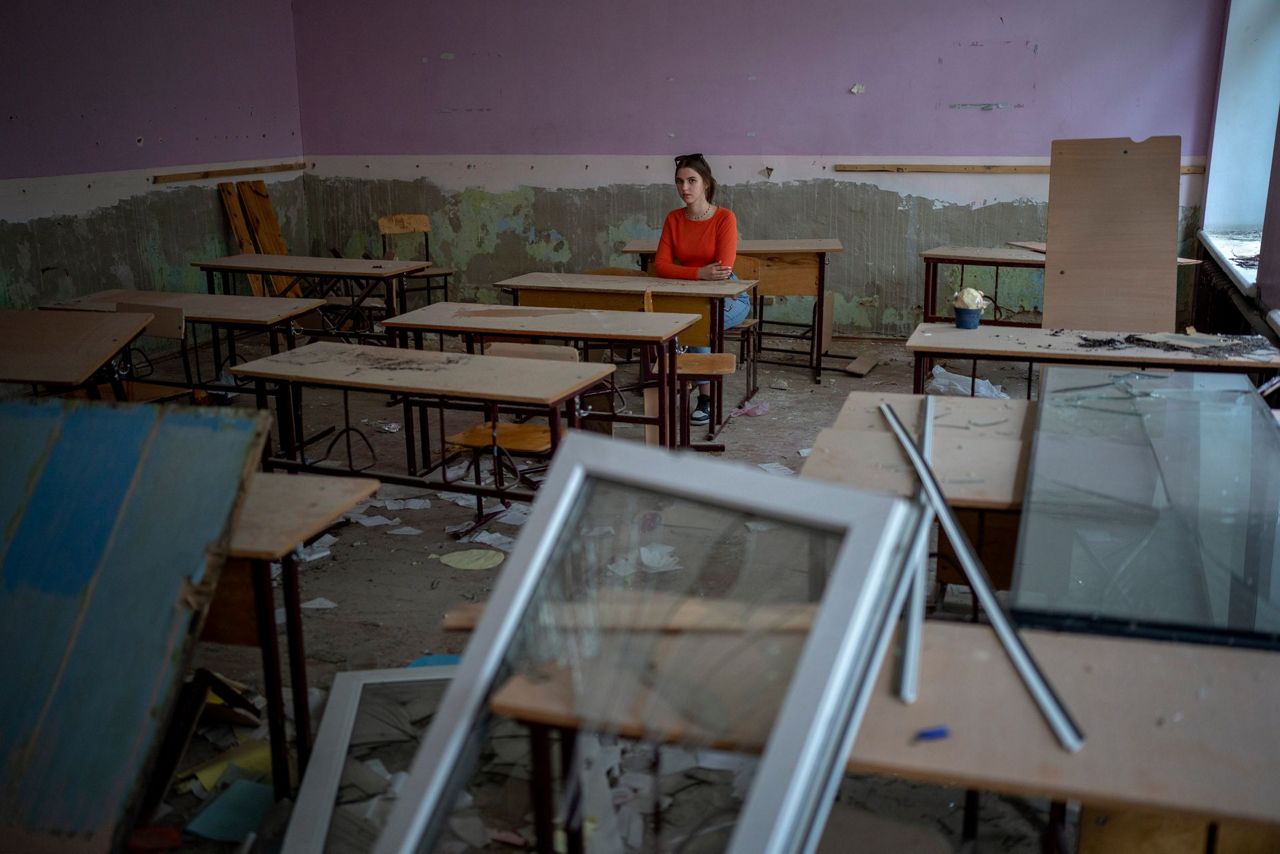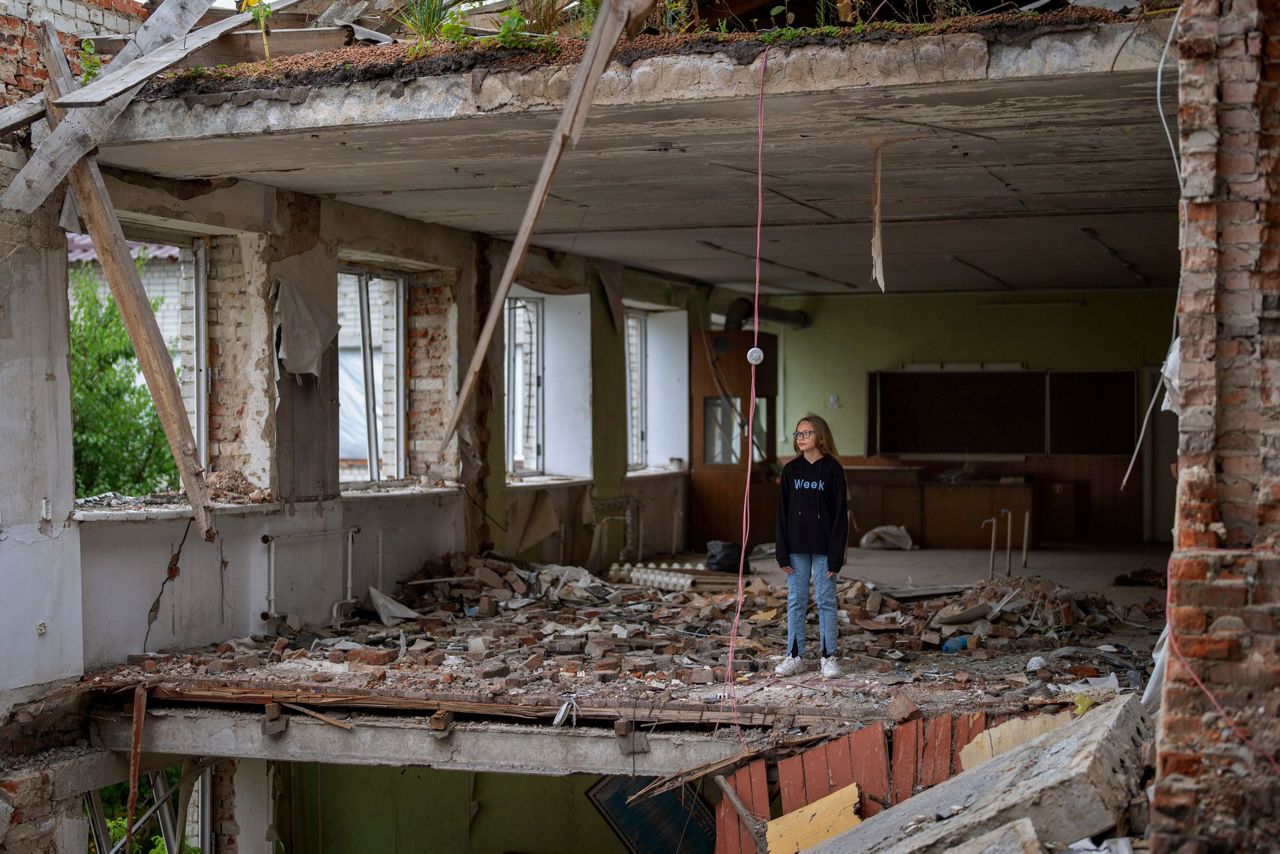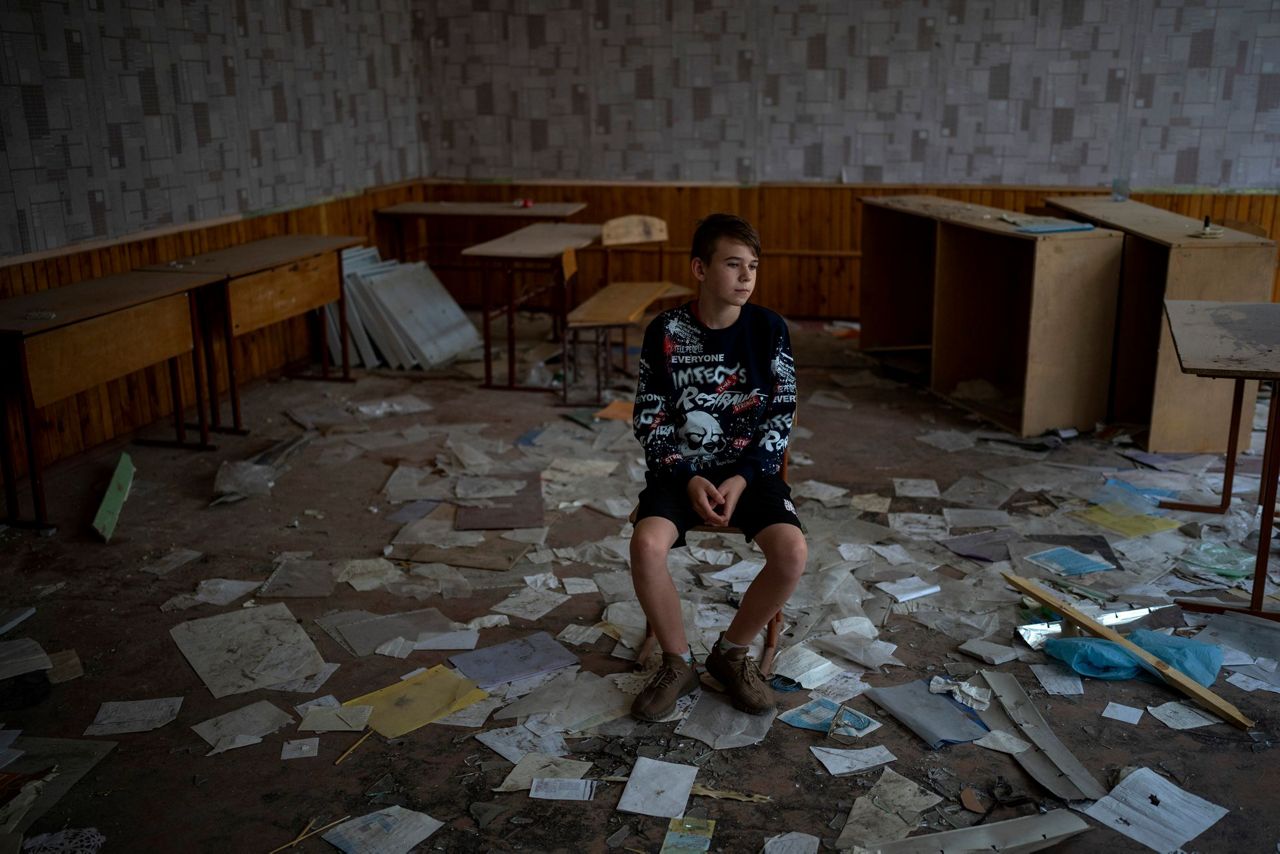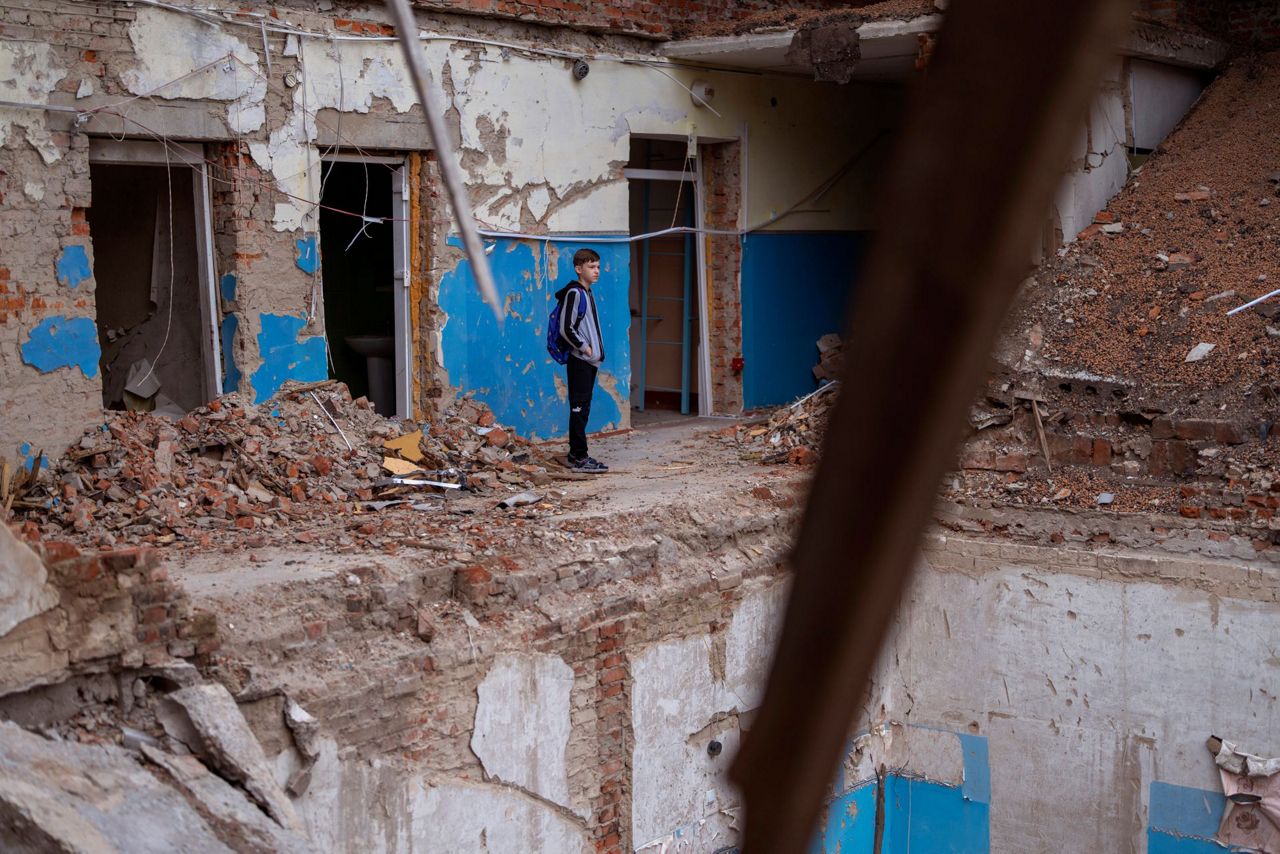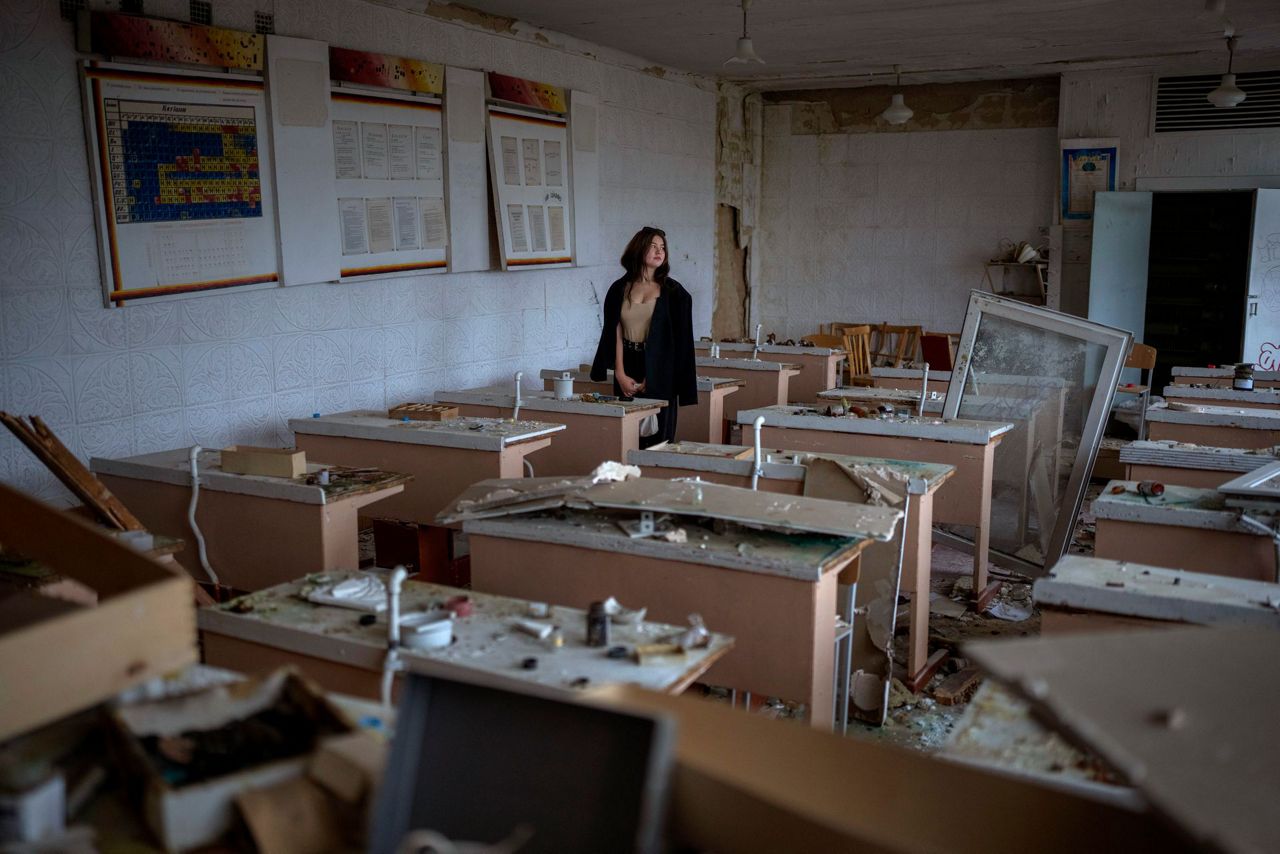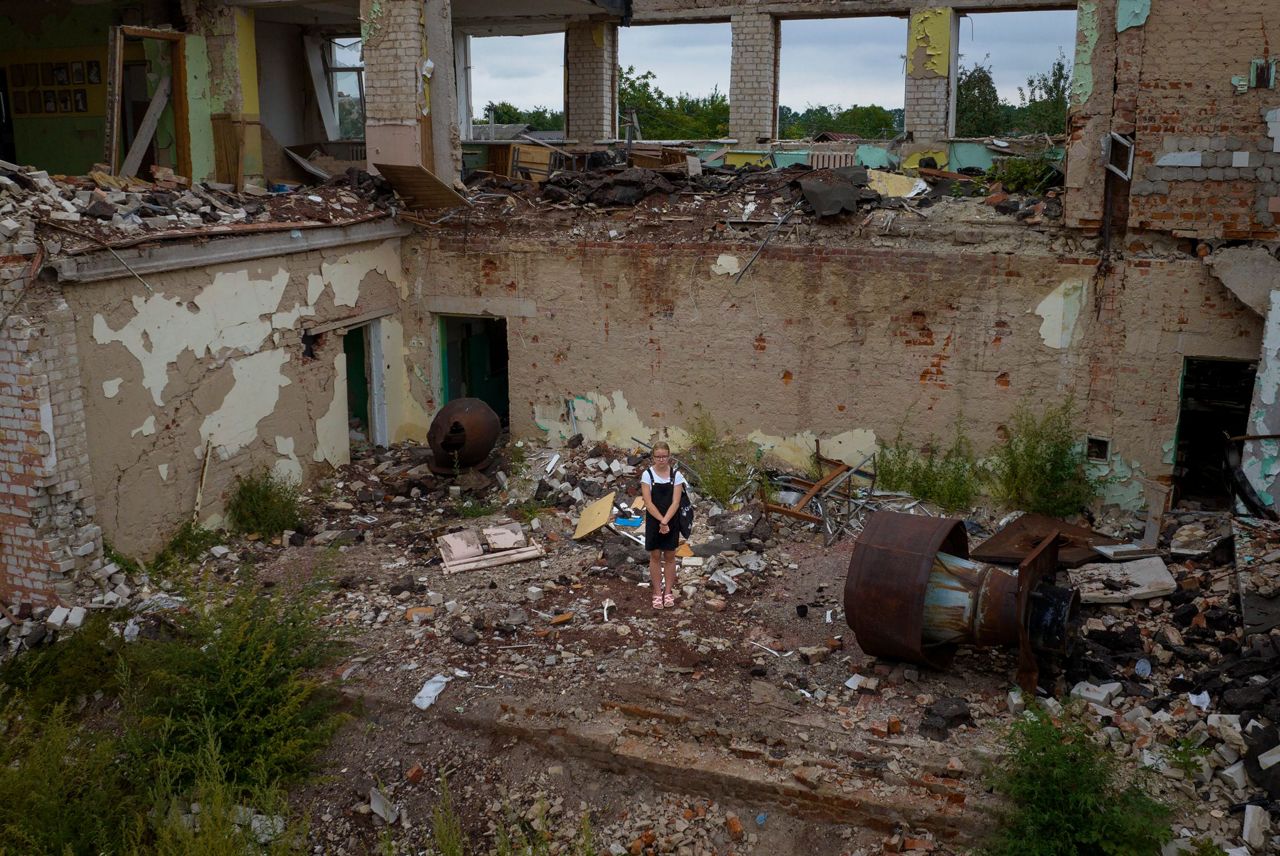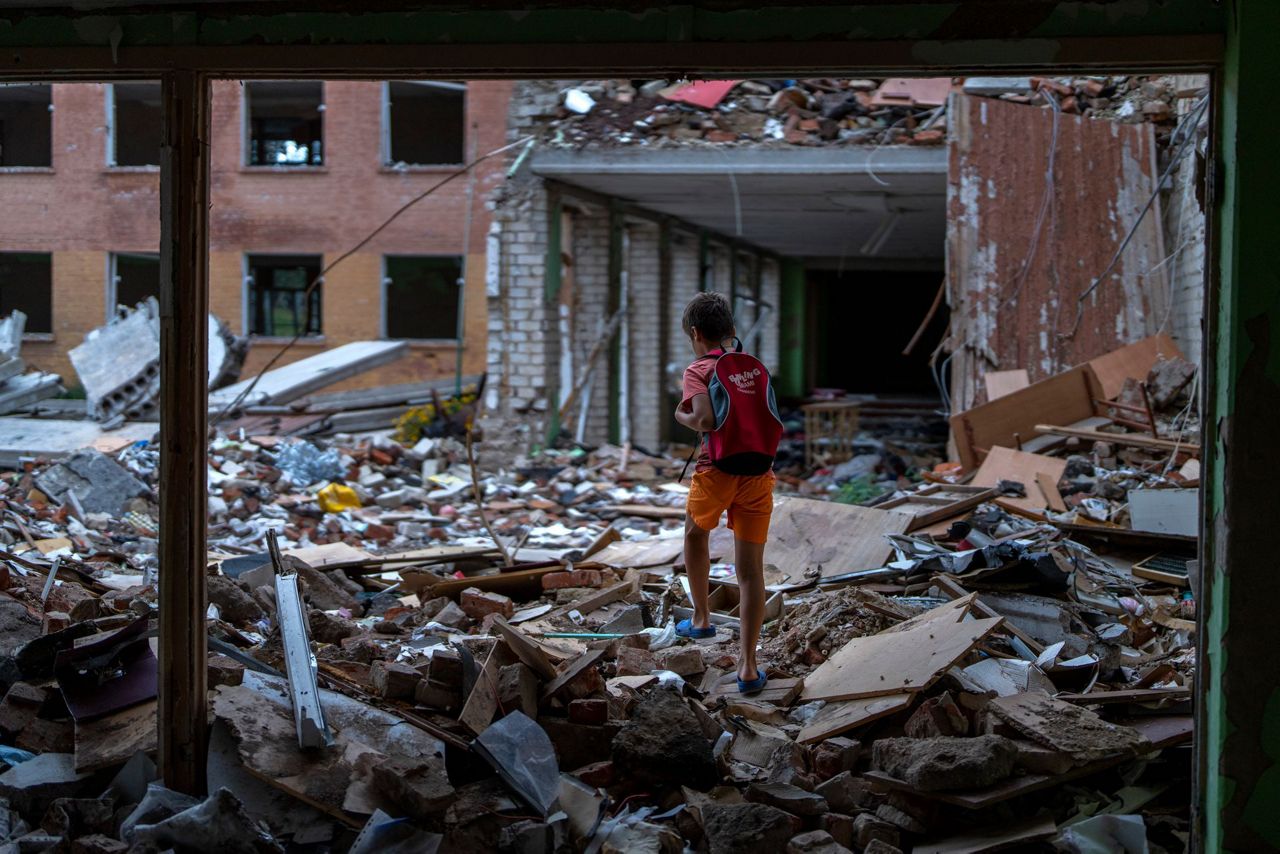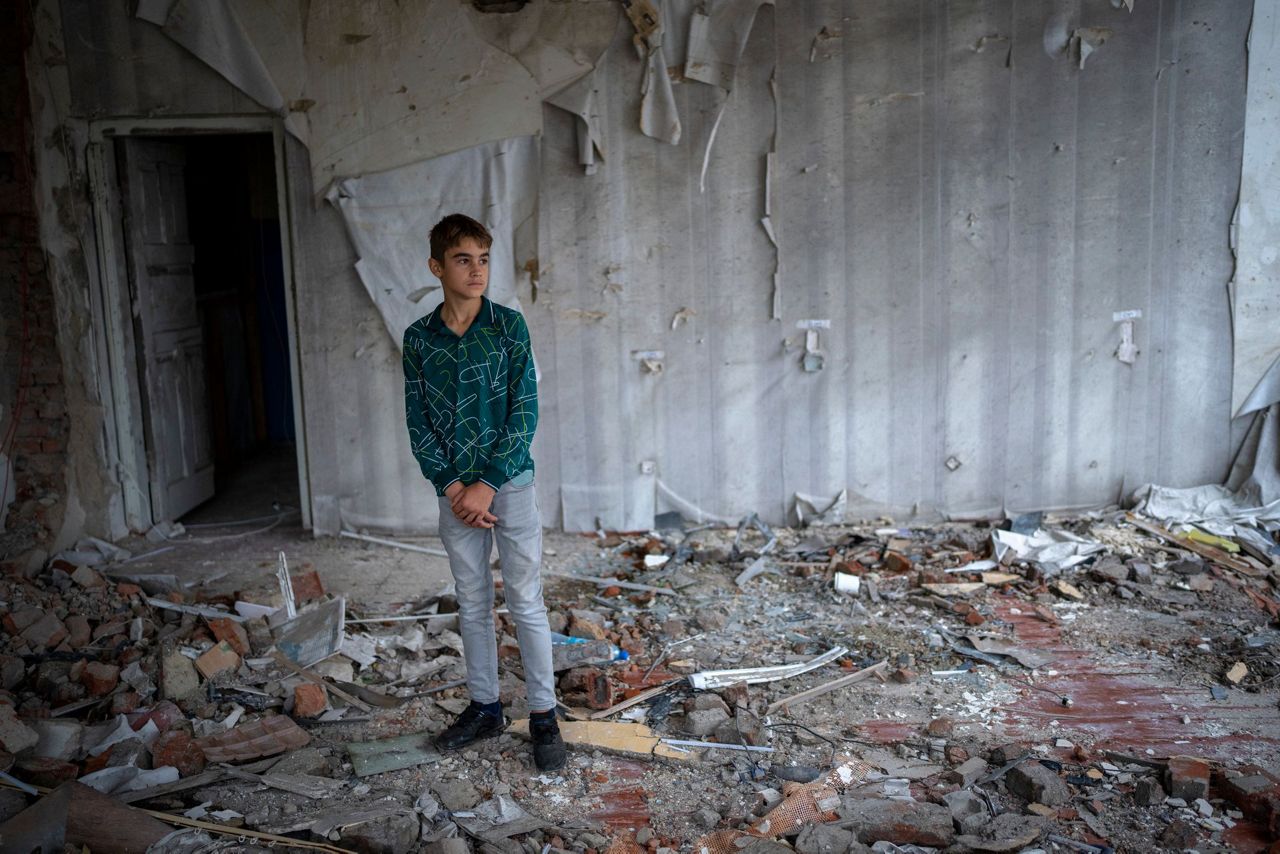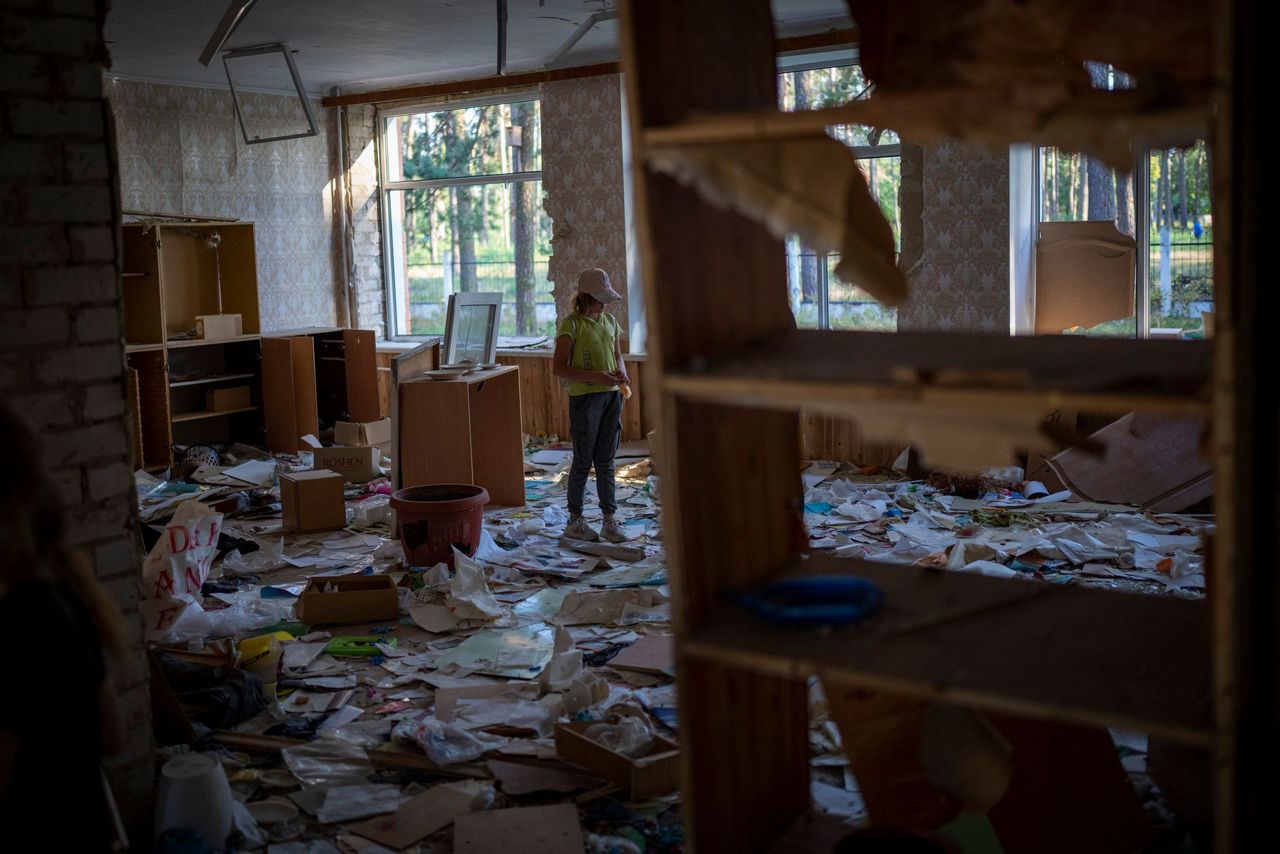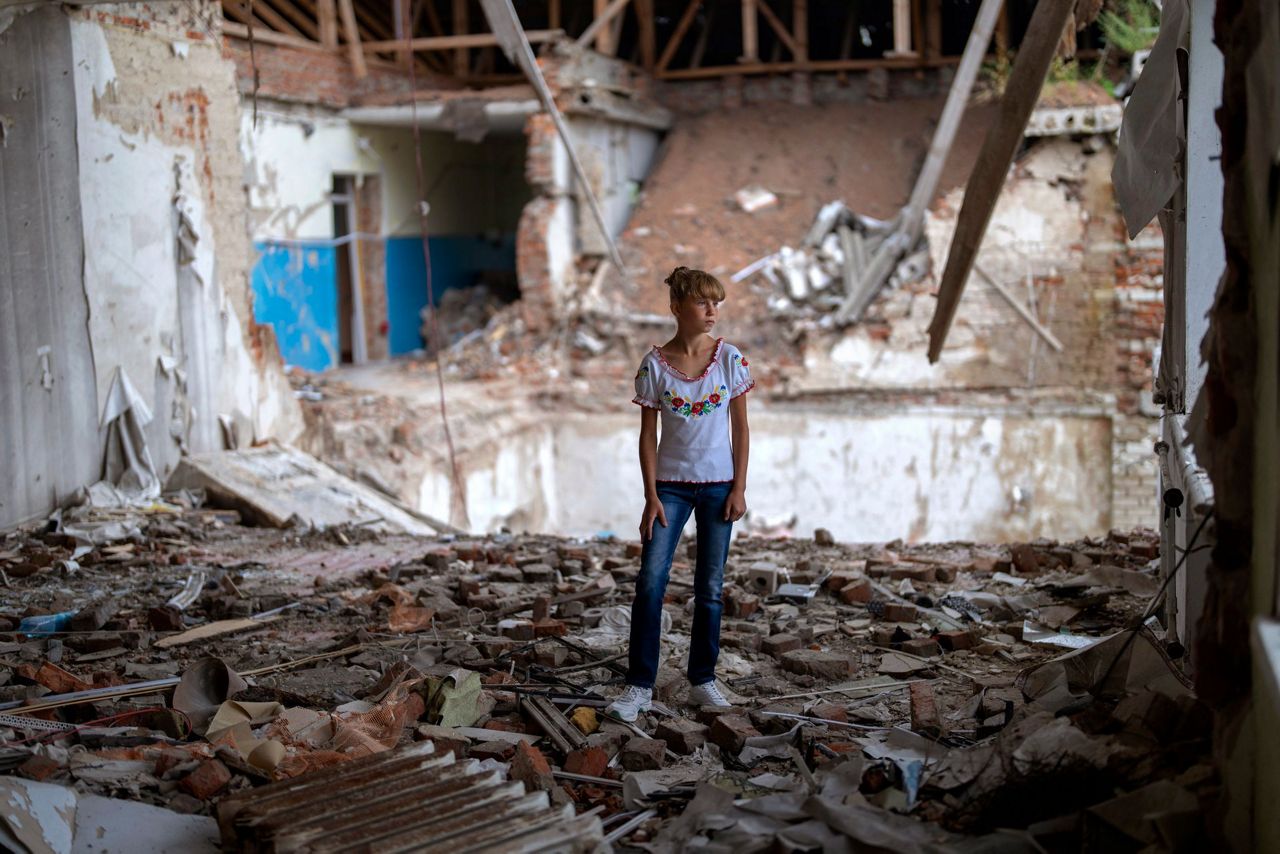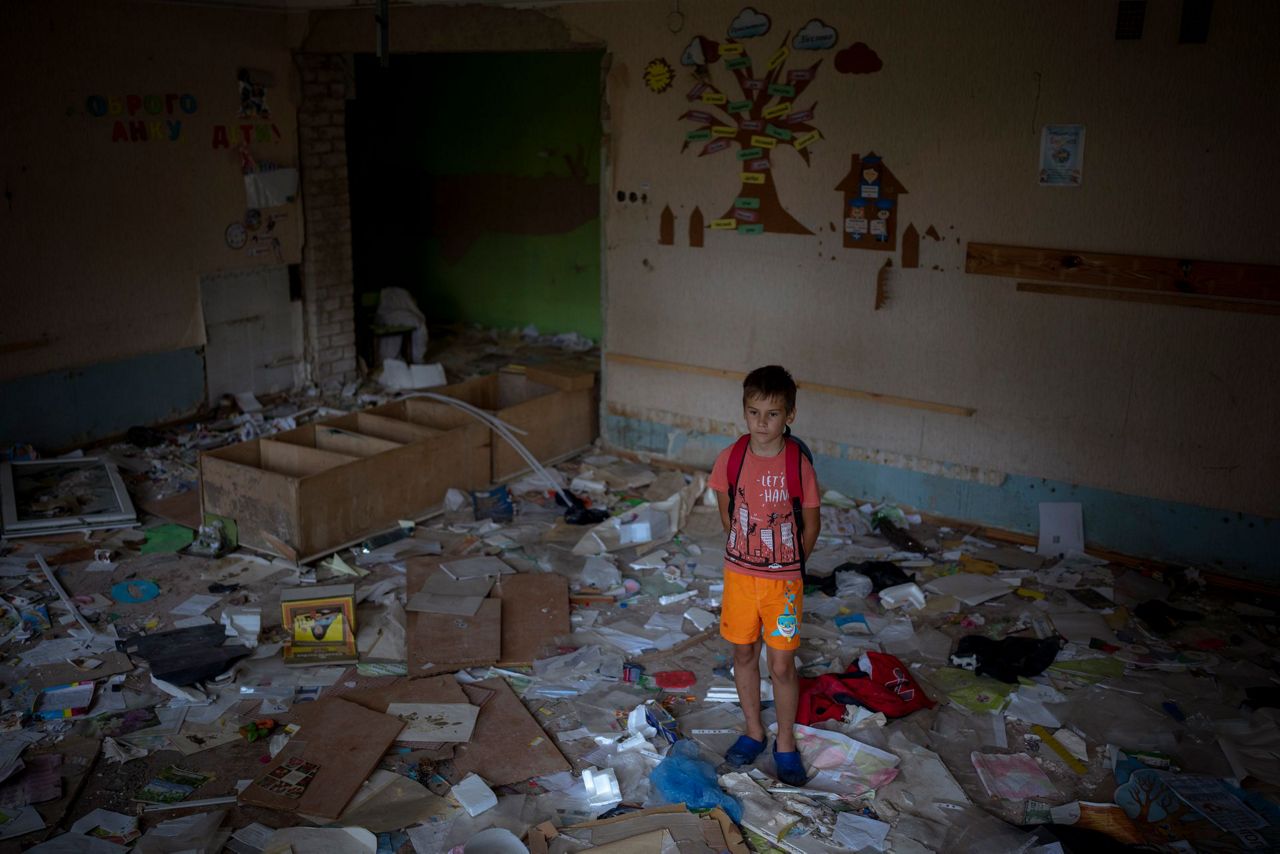CHERNIHIV, Ukraine (AP) — Like children everywhere, returning to school in Ukraine comes with the excitement of reconnecting with friends mixed with an apprehension of teachers’ demands.
The kids of school No. 21 now share a different common experience amid Russia's war: Every student has become familiar with the sound of an air raid siren and can distinguish between the sounds of anti-aircraft weapons and cruise missiles.
The school, in the northern city of Chernihiv, has been shut down after suffering extensive damage from Russian bombardment. When schools open Thursday, its children will be scattered to wherever classrooms are available. Their old playground is still a regular meeting point, but the games they play have changed: Imaginary army checkpoints have replaced hide and seek. Imitating the sound and impact of rockets is a popular new pastime.
Much of Chernihiv and surrounding villages about 130 kilometers (80 miles) north of Kyiv were devastated by intense artillery shelling in the early stages of the war. When the Russians retreated, they left behind 133 damaged schools in the region and 11 others destroyed.
Polina Burenko, 11, occasionally comes to school No. 21. Together with her best friend, she likes to explore what’s left of the life she had before the invasion.
“What I’m most sorry about is that it will never be the same,” she says, looking up at the second-floor classroom where she used to sit. The gutted right side of the school is above a bomb shelter where civilians hid from Russian aerial bombardment.
Polina recently returned to the city after her family had fled the country in a deadly escape that she says will always haunt her.
“When we were leaving, the Russians shot at our car and killed the driver. He was a close friend of our family,” she says, her voice quiet but her face betraying the trauma she still feels. “I don’t understand why Russia wants our lands. It’s such a big country.”
Children visit the school for different reasons: Some out of curiosity, others to recover objects from the debris to use for their games ‒ all fearlessly navigating through the damaged classrooms, stepping on the broken glass and over torn textbooks.
“When I first came here after the school was bombed, I was really scared. But then I just got used to it,” says 16-year-old Valeria Pyscholka.
The students were relocated to nearby schools. But Valeria is nervous about the move in her graduation year: “I only studied here for a year, but it was the first school where I felt accepted,” she said.
The war followed attendance disruptions over two years because of the pandemic, during which many students switched to online learning.
“I don’t want to stay at home anymore. I want to feel the atmosphere of my graduation year. I miss it,” says Khrystyna Ignatova, 16. She’s eager to join a new school and and says she wants to put the last six months of war behind her.
“What happened is a tragedy. I already cried out about everything I lost. I miss my school, my friends, and the teachers. But there will be a new school, new teachers and friends. Life has to go on,” Khrystyna says, standing in front of the ruins of her old school.
After spending one month hiding in a basement shelter, her biggest fear is that Russian troops may return.
“Sometimes, when the air raid sirens sound, I start panicking. It feels like I’m in a fog, and terrifying memories pop up in my mind,” she says.
To overcome her fear, she says she’s ditching online classes: “I want to see my classmates peers in person and not on the screen of my phone.”
There is currently no plan or budget for the reconstruction of school No. 21. Authorities say the Chernihiv region suffered $380 million in losses in education infrastructure. The priority is to invest the money in partially damaged schools, where speedy restoration is considered possible.
Anna Stupak, 9, feels sad when she enters her empty old classroom and sees the broken furniture. Her happy first memories of school are now tainted by the destruction.
“Every time I enter the classroom, I remember how it used to be” says Anna, recalling with pride when her teacher first called her up to the blackboard.
“I will miss the kids from my class. And I’m sad that the school is damaged, it’s scary now to look at the windows. I’ve never seen such a terrible thing in my life.”
Most children from No. 21 don't betray any feelings of hatred — common among many adult Ukrainians — toward Russian forces that are still waging war in the east of the country. But 11-year-old Ivan Humenko admits to feeling some anger.
“I feel offended when I visit here,” he says. “It’s a resentment that the Russians destroyed my school.”
___
Follow AP’s coverage of the war in Ukraine at https://apnews.com/hub/russia-ukraine
Copyright 2022 The Associated Press. All rights reserved. This material may not be published, broadcast, rewritten or redistributed without permission.



